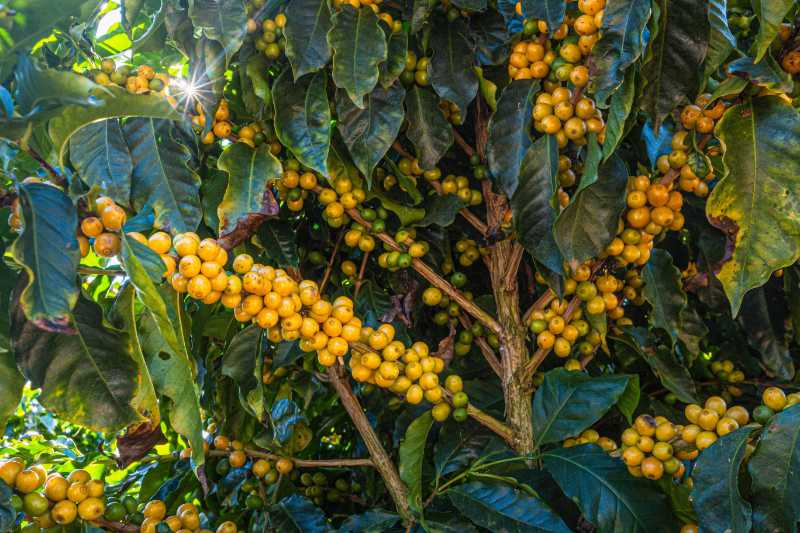Your Cart (0)
Arrived mid November 2025 in grainpro liners.
This
lovely Natural from the Santa Clara farm in Minas Gerais has just
arrived. It has been a difficult year, to say the least, for sourcing
coffee from Brazil. Once 50% tariffs on Brazil were put in place,
almost no coffee was being imported to the US. So we are fortunate to
have sourced Fazenda Santa Lucia from one of the main producing areas in
the country.
Producer Helcio Carneiro Pinto
has been working in coffee since he was 15 years old, helping his mother
produce and process crops. In 1976, Hélcio married Glycia Pereira
Carneiro and began to manage Santa Lucia. In the 1990s, Helcio was one
of the founders of Aprocam, a group of pioneers that began a movement
for the pursuit of quality coffee in the region of Carmo de Minas.
Aprocam introduced the idea of processing pulped naturals on Carmo de
Minas and Hélcio was the first producer to get the machines for this
process.
Since that development at Santa Lucia, Helcio has worked with universities and scientists, and he has taken trips to other coffee-producing countries to further his knowledge of the production of specialty coffee. Today, Helcio and Fazenda Santa Lucia maintain a worldwide reputation for quality Brazilian coffees.Fazenda Santa Lucia is large, 740 hectares but only 83 hectares of the farm are for growing coffee.
Since that development at Santa Lucia, Helcio has worked with universities and scientists, and he has taken trips to other coffee-producing countries to further his knowledge of the production of specialty coffee. Today, Helcio and Fazenda Santa Lucia maintain a worldwide reputation for quality Brazilian coffees.Fazenda Santa Lucia is large, 740 hectares but only 83 hectares of the farm are for growing coffee.
There is a social premium included in
the purchase of these coffees that directly funds a charity called
CriaCarmo, a youth initiative established by CarmoCoffees, our export
partner in Carmo de Minas, that aims to provide social, educational, and
athletic opportunities to at-risk youth in the region. Cafe Imports has
supported this project since 2013 with owner-equity donations, and also
partners with CarmoCoffees on one lot of coffee annually that is priced
to benefit CriaCarmo. The youth who participate primarily come from the
local coffee-producing families and enjoy karate, futbol, and chess
lessons among other things.
Yellow Bourbon is a naturally occurring Typica mutation; selected from Ethiopian coffee cultivated in Yemen transplanted to Bourbon Island (now Réunion) in the 18th century.
Minas Gerais is the largest state for coffee production, accounting for half of the country's coffee. It contains many subregions with varying elevations and climates, all part of the Brazilian highlands. Brazil's largest rivers and mountains are in this state, with the southern portion producing the most coffee due to the forested hills and cool weather. Coffee is also produced in the highland savannah in the west, the Mantiqueira Mountains in the south, and the Atlantic forest in the east.
Yellow Bourbon is a naturally occurring Typica mutation; selected from Ethiopian coffee cultivated in Yemen transplanted to Bourbon Island (now Réunion) in the 18th century.
Minas Gerais is the largest state for coffee production, accounting for half of the country's coffee. It contains many subregions with varying elevations and climates, all part of the Brazilian highlands. Brazil's largest rivers and mountains are in this state, with the southern portion producing the most coffee due to the forested hills and cool weather. Coffee is also produced in the highland savannah in the west, the Mantiqueira Mountains in the south, and the Atlantic forest in the east.
- Farm: Santa Clara
- Producer: Helcio Carneiro Pinto
- Country: Brazil
- State: Minas Gerais
- Region: Cerrado
- Altitude: 900 - 1200 meters
- Variety: Yellow Bourbon
- Processing: Full Natural

Yellow Bourbon

The lovely Santa Lucia Farm in Minas Gerais

